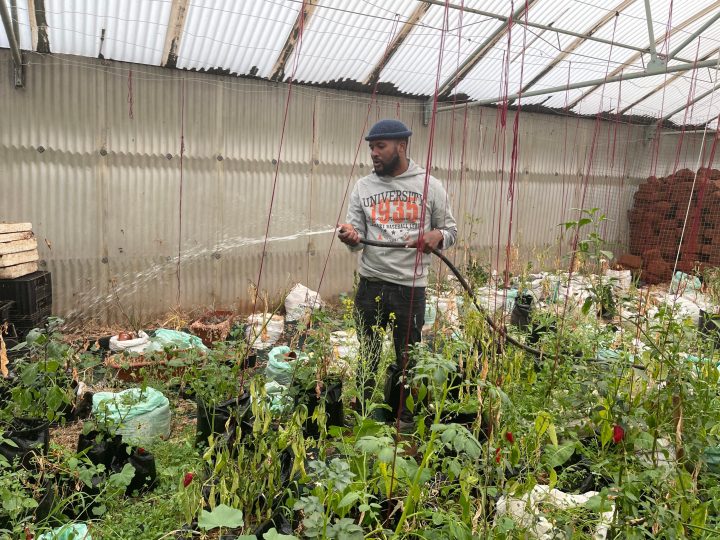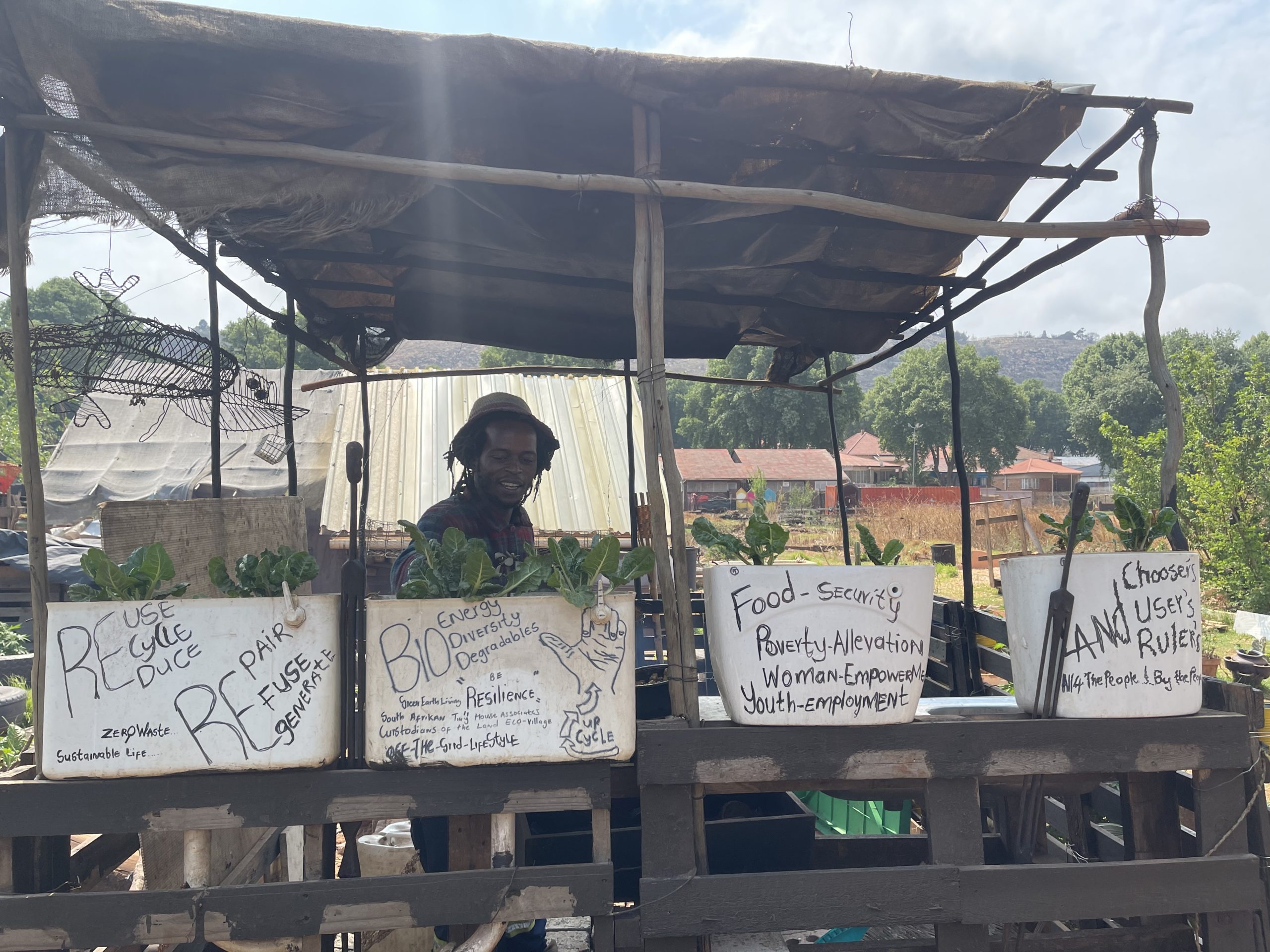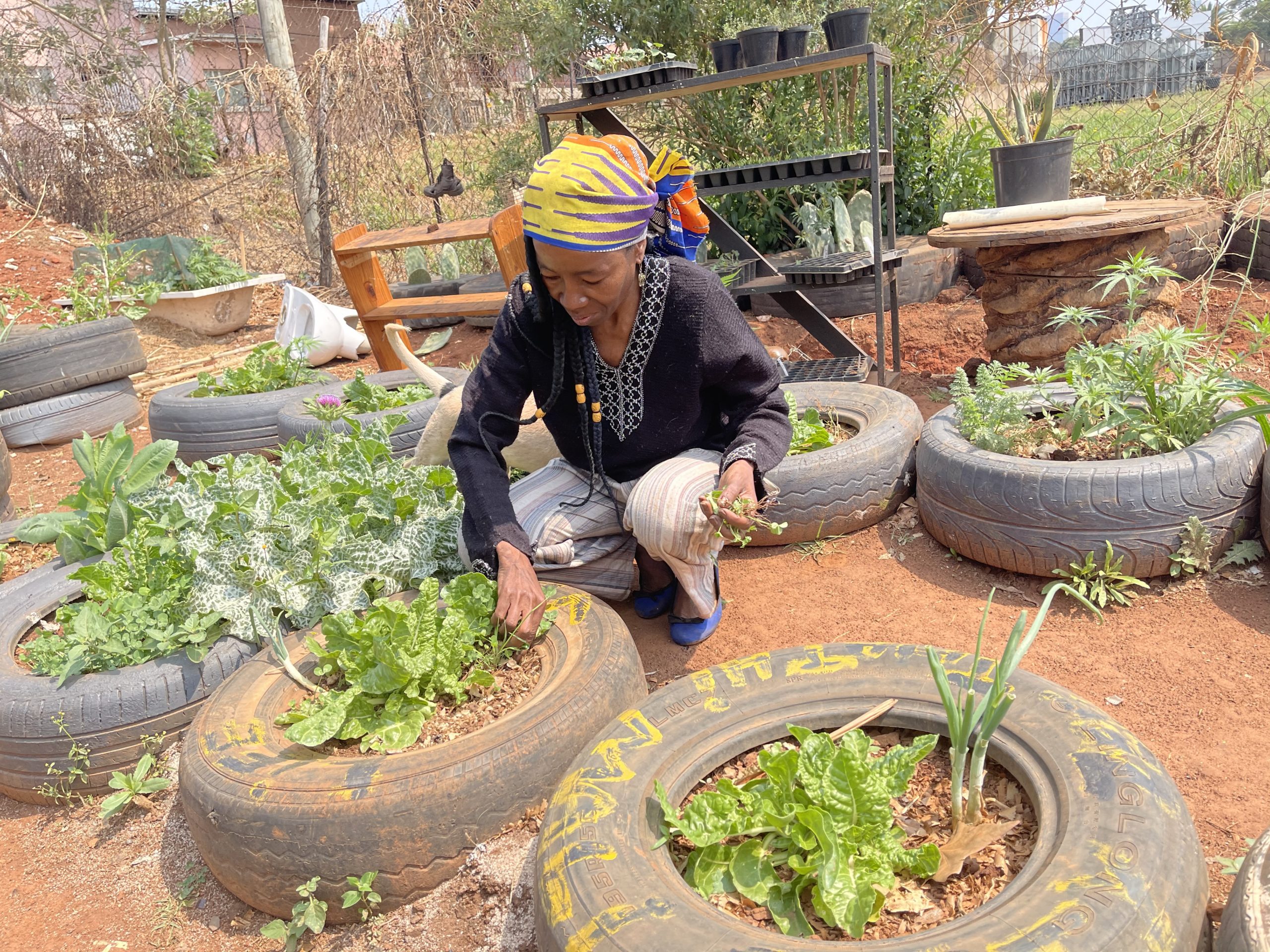MAVERICK CITIZEN: FOOD JUSTICE
Siyabonga Ndlangamandla on planting the seed of food gardens in the thriving Makers Valley area

During the Covid-19 crisis, many non-profit organisations have kept communities fed through soup kitchens. But the Makers Valley Partnership farm has done more than ensure food for the poor. It has pioneered sustainable community systems for access to food by encouraging people to grow their own.
The Makers Valley Partnership farm is integral to the Makers Valley Partnership, born out of the collaborative Covid-19 response to the high levels of hunger in the Makers Valley area, east of the central business district of Johannesburg.
The initiative is largely managed by its co-founder and board member of the broader Makers Valley Partnership, Siyabonga Ndlangamandla, who is a resident and urban farmer.
According to Ndlangamandla, he created the farming venture to support farmers, gardeners and others interested in growing their own food within the Makers Valley community to create a sense of food security and to make use of the pavements and open spaces in the neighbourhood that remain neglected.

Nkosinathi Thango, who runs a community garden project at a former illegal dumping site. (Photo: Supplied)
“I am connected to the food sector and making a difference in my immediate community in realising and experiencing hunger through many faces who came knocking at my gate asking for food and not having enough to cater for all. It then became my mission to try and fill in that food gap in the Makers Valley area.
“This was done by establishing the ongoing ‘Edible Streets’ project, planting vegetables on the pavements around Victoria Yards and encouraging residents with open spaces to have their own food gardens,” says Ndlangamandla.
Ndlangamandla says they plant vegetables that mature quickly such as spinach, carrots and spring onions to meet the immediate needs of the community. Once the plants have ripened, families in need can help themselves to the vegetables to prepare meals at their homes while some vegetables are picked up and donated to surrounding soup kitchens to cater for the homeless who do not have the means to prepare food.
Ndlangamandla, under the umbrella of Makers Valley Partnership farm and in his personal capacity, with the support of the community, is part of seven pavement gardens and seven backyard gardens that provide a lifeline for many in his neighbourhood.
He says, “We have the Growing Communities project where we support the community with [lending] them tools, sharing knowledge on how to grow food, getting them the seeds and connecting them with the relevant persons in the industry… It’s like a multiplier effect; I help others to help others.”
Attesting to the impact of the Makers Valley Partnership farm were residents and urban farmers Trudy Motseta and Nkosinathi Thango, who both run a community garden project at a former illegal dumping site.
Motseta says, “Siya has been of great help to us in terms of resources and connections. He has been feeding us with information on new ways of farming, donating food to help cater for some of the children whom we are teaching farming skills and bringing us seeds to plant. Also, he is connecting us with investors and new projects; he recently connected us with hydroponic farmers who are still to come so we can establish the working relationship”.

Trudy Motseta, a resident in the Makers Valley area, helps run a community garden project at a former illegal dumping site. (Photo: Supplied)
According to Thango, Ndlangamandla’s positive energy and passion for farming have inspired them and the work they do in the garden. He says this impact has now doubled the support and involvement of the community.
“The neighbours are now more interested to join us in growing the food and we have quite a growing number of them running their own patches in this space, and others support us by purchasing our products at affordable prices. In turn, we are also able to ask to get water from their homes since the garden has no water supply,” says Thango.
Motseta and Thango grow a lot of indigenous and drought-resistant plants because their setup does not have a reliable water supply. The plants they grow include amaranth, lentils, kale, spinach and spring onions. Thango says they use a more recyclable system because part of the project involves cleaning up.
Ndlangamandla says the Makers Valley farm means more than just providing food, it is also about communicating the importance of understanding and being part of the food we eat. DM/MC



















 Become an Insider
Become an Insider
A true silver lining.